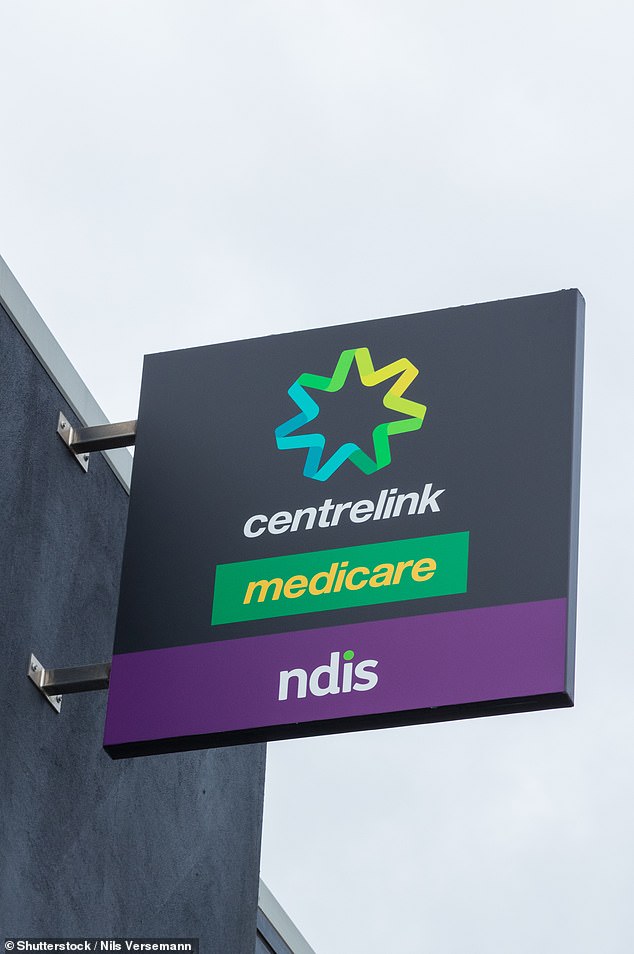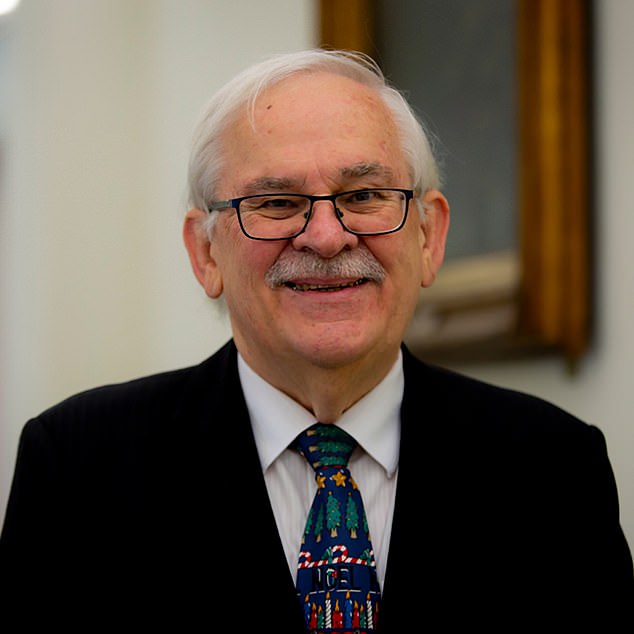How Medicare and a trip to the doctor is radically changing with ‘MyMedicare’:
Australians will be spared expensive trips to specialist doctors and benefit from more telehealth appointments thanks to a series of major changes to Medicare.
Some GPs have started telling patients to register for a free, new government service called ‘MyMedicare’, which launched on October 1.
Under MyMedicare, Australians can formally register their preferred doctor’s clinic and GP with the government – if the clinic has joined the program.
A number of benefits will then flow to registered patients and doctors under Prime Minister Anthony Albanese’s plan.

The federal Labor government this month introduced MyMedicare, where Australians can formalize their relationship with their GP to access new services compatible with the 21st century
Medicare Change #1: Telehealth Changes
One of the biggest changes – which has already been implemented – is that Medicare will cover longer telehealth doctor appointments for MyMedicare enrolled patients.
Telehealth appointments that receive a Medicare rebate were limited to 20 minutes. Patients who register with MyMedicare receive sessions longer than 20 or 40 minutes, covered by Medicare rebates.
The government expects that as a result, Medicare rebates will cover, on average, about half the cost of such a telehealth appointment.

Australians can now have a long Zoom call with their doctor and not have to travel great distances to see individual medical specialists when they register with MyMedicare (pictured is a stock photo)
Medicare Change No. 2: Specialist and GP shake-up
Further changes to MyMedicare, which will be implemented over a number of years, will allow primary care physicians to consult a specialist and provide direct advice to a patient.
That’s instead of GPs always referring patients to separate specialists for a series of expensive face-to-face appointments.
This means that a GP can seek and give advice from a dermatologist, a gynecologist for women’s problems or a urologist who specializes in men’s health – rather than having to refer patients to separate appointments for each part of the body.
A lump sum is paid to specialists so they can share advice with doctors.
Let GPs ‘do more’
Dr. Stephen Duckett, an honorary professor at the University of Melbourne who led the federal Department of Health and Aging in the mid-1990s, said the specialist plan was aimed at getting GPs to do more.
“You want the primary care system to do more so that the person looking after your urology also has an understanding of your heart,” Dr Duckett told Daily Mail Australia.
“You want to reverse some of this separation of the body into body parts and look at the whole person.
‘If you can try to get the GP to do more, then that is a good thing.
‘You have continuity of care and especially in a system where more and more people have multiple, chronic diseases, the more you can have one person really take care of them, supported by these other specialists without having to go to the other specialists. ‘
Medicare Change No. 3: Encourage Bulk Billing
From November 1, doctors will also receive triple the bulk incentive payments for appointments with children under 16 and patients with Commonwealth concession cards.
The incentives will be even greater for physicians who serve patients living in regional, rural and remote communities.
This will support Australians who are “feeling cost-of-living pressures most acutely”, the government said.
What experts think of the plans
Dr. Duckett said the telehealth changes would bring the nation’s health care system into the 21st century.
‘The Covid pandemic has dramatically changed our views on telehealth and our propensity to use it, both phone and video calls. If you think about it, this is now 2023 and we really shouldn’t have a healthcare system that’s stuck in the 1950s. with face-to-face care for everything,” he said.
Dr. Duckett said MyMedicare addresses issues of medical fairness by requiring Australians to register their long-term connection with a particular GP practice so that telehealth can be covered by taxpayers.
“What MyMedicare does is say, ‘Look, because you’ve signed up with the practice, it means that you intend to have an ongoing relationship with that practice and you may already have an ongoing relationship with that practice, and so we will we trust the practice to use telehealth appropriately,” he said.
Australian Salaried Medical Officers’ Federation president Tony Sara said longer telehealth consultations would be particularly valuable for patients living in regional areas away from their doctors.
“It can’t completely replace face-to-face care, so it has a role to play, especially in the bush,” he told Daily Mail Australia.
‘It extends the reach of services, it does not replace them completely.’

Bill Bowtell, an adjunct professor of health care at the University of New South Wales, was slightly more skeptical.’ He was a senior policy adviser to former Health Minister Neil Blewett, who was in charge in 1984 when Bob Hawke’s government introduced Medicare.
Bill Bowtell, an adjunct professor of health care at the University of New South Wales, was slightly more skeptical.’
He was a senior policy adviser to former Health Minister Neil Blewett, who was in charge in 1984 when Bob Hawke’s government introduced Medicare, reviving Australia’s system of universal health care, which briefly existed in the mid-1970s.
“Telehealth is all well and good, but it cannot be used as a replacement for in-person doctor visits without co-payments and other costs,” he told Daily Mail Australia.
This means that MyMedicare may not address the problem of the Medicare gap, where patients ultimately find themselves out of pocket because Medicare does not cover the entire doctor’s bill because many primary care physicians refuse to bulk bill.
The Australian Medical Association, which represents doctors, is concerned about the model of providing lump sum payments to doctors to encourage them to bulk bill and provide specialist advice after consultation with specialists.
President Professor Stephen Robson said the AMA was concerned Australia could emulate the mistakes of the British approach, known as a capitation payment system.
“The AMA will continue to work with the federal government to ensure that programs linked to MyMedicare improve patient access to care and are expanded over time, while also ensuring that this does not lead to to a flawed capitalization model used in Britain,” he said. Daily Mail Australia.
Nevertheless, the changes to MyMedicare could also help address Australia’s doctor shortage, which is causing medical students to choose to become specialists, who are typically paid more than double or even triple what a suburban GP gets.
Neurosurgeons had an average taxable income of $604,582 in 2020-2021.
Dermatologists typically earned $333,099, compared to $398,888 for gynecologists and $458,794 for gastroenterologists who specialize in intestinal problems.
But GPs were typically paid $187,408, after employment and investment property expenses were deducted for tax purposes.

Dr. Stephen Duckett, an honorary professor at the University of Melbourne who led the federal Department of Health and Aging in the mid-1990s, said the specialist plan was aimed at getting GPs to do more.
Dr. Duckett argued that this aspect of MyMedicare could solve Australia’s shortage of general practitioners by making medicine more interesting for the suburban doctor and encouraging more medical students to consider that field.
‘It will make the GP’s work more interesting and secondly, the demand for specialists will decrease. People who would otherwise want to become specialists might say: ‘The work of a general practitioner is more interesting and there will be less work for specialists.’
Since October 1, Australians have been able to register with MyMedicare by nominating a GP or Aboriginal healthcare specialist.
By early October, 2,600 general practices had registered with MyMedicare, accounting for almost 40 percent of Australia’s 6,500 practices.
Health Minister Mark Butler said MyMedicare aims to provide Australians with more consistent care and keep people out of hospital.
“Patients enrolled in MyMedicare will enjoy stronger relationships with their care teams and more consistent care, including longer telehealth consultations,” he said.
